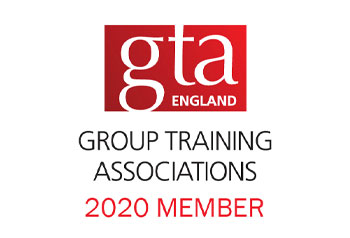Avensure Ltd give their view on the potential aftermath of Brexit for employers.
- It is clear we will not leave the European Union until Article 50 of the Lisbon Treaty has been triggered. This effectively is notice period from leaving the EU, once that has started there is a two year time limit on negotiations with member states to ensure the continuity of business and trade flows between the UK and other EU states.
- Parliament are not legally bound to trigger Article 50 and there is still some debate around this. It was announced by Parliament following an online petition whether the rules around the referendum need to be changed and in fact whether there is a requirement for a second referendum? This will be debated on Sept 5th, although Theresa May has stated that ‘Brexit’ does mean ‘Brexit’.
- So how will this affect employers? If it is going to happen it is likely that the process will start by the end of this year. One of the arguments of the ‘Leave’ Campaign was that we would not be bound by EU law – so it is interesting to note that from an Employment Law perspective very little will change immediately. TUPE, The Equality Act 2010 and Working Time Regulations 1998 (amended) will not be affected. This is because most employment law has been derived through statute or statutory instrument meaning it has to be specifically repealed by Parliament so it does not apply any more. Even though TIUPE and Working Time regulations were derived from the EU, the UK Parliament went over and above what was required by EU law. The Equality Act is a consolidation of various pieces of legislation that protect individuals against discrimination. Whilst influenced by EU legislation, plenty of counties outside EU that have similar legislation therefore it is doubtful that changes will be made, so for now it’s business as usual from an employment law perspective.
- What happens to migrant workers ? There is much concern coming from employers around this area. Currently they are not affected but advice should be sought re: their visa status. There are changes to immigration taking place thanks to the Immigration Act 2016 which brings in increased penalties for employers employing illegal workers. It is vital that potential employees right to work in the UK is evidenced and applied to everyone. Suggestions are to check passports/visas or other relevant document which should be asked for on the first day of work. Make sure employee records are kept up to date. Currently EU workers still have a right to work in UK but keep an eye on changes coming in.
- From next April, all workers customer facing must speak fluent English or Welsh if in Wales and a visa levy will apply to employers employing tier 2 workers who are non EEA nationals. As with other non-EU countries there still remains a need for skilled workers and income from oversees students. We may see changes to the requirements of different tiers or even the introduction of a points based systems but whatever, the EU has made it clear that freedom of trade with the UK also includes freedom of movement of its workers. Future immigration will be influenced by policy and negotiations with the EU so as negotiations progress, we need to keep up to date with the changes.
- Managing relationships in the workplace is also important for some employers as employees views differ and can cause friction or even harassment. As an employer how do you manage this? Well this is likely to be governed under the Equality Act which would steer your response. Note that under the provisions of religion and belief, political views can be protected however it must be more than opinion so simply saying voted leave or remain is not protected. But some views may be protected so be clear about the situation. Whatever you do, the situation should not be ignored.
- Do as you would do with any other situation, investigate, take witness statements and consider the best way forward taking account of who instigated the behaviour and the severity but treating everyone involved consistently.
- Leaving the EU may affect businesses in one of the following ways so it important to start safeguarding your business now. The recommendation is to plan for a recession. The pound may fluctuate, there may be a decreased pool of workers as immigration rules change. It is likely that there will be increased energy costs as energy and fuel suppliers in EU will need to be re-negotiated with. Additional charges or taxes could be applied. It is much easier to safeguard if you have that in mind. If you rely on oversees workers, have a contingency plan – this is where Apprenticeships can support you. Review redundancy policies. Likewise if you have workers who work oversees with contracts based on English Law, one of the immediate effects of leaving the EU is those clauses may not apply anymore so it is important to get those contracts checked out.
- It is still not clear whether we will still be able to access EU funding post Brexit. Some industries may be more affected such as construction and energy but we can expect lots of changes on commercial law and competition law for example (as this may end) so keep up to date with what is going on.
A full list of webinars including this one can be found at http://info.avensure.com/webinar-series
Avensure also have an online magazine which is really useful and can be found at http://hr-24.co.uk. or you can follow them on twitter @Avensure.










